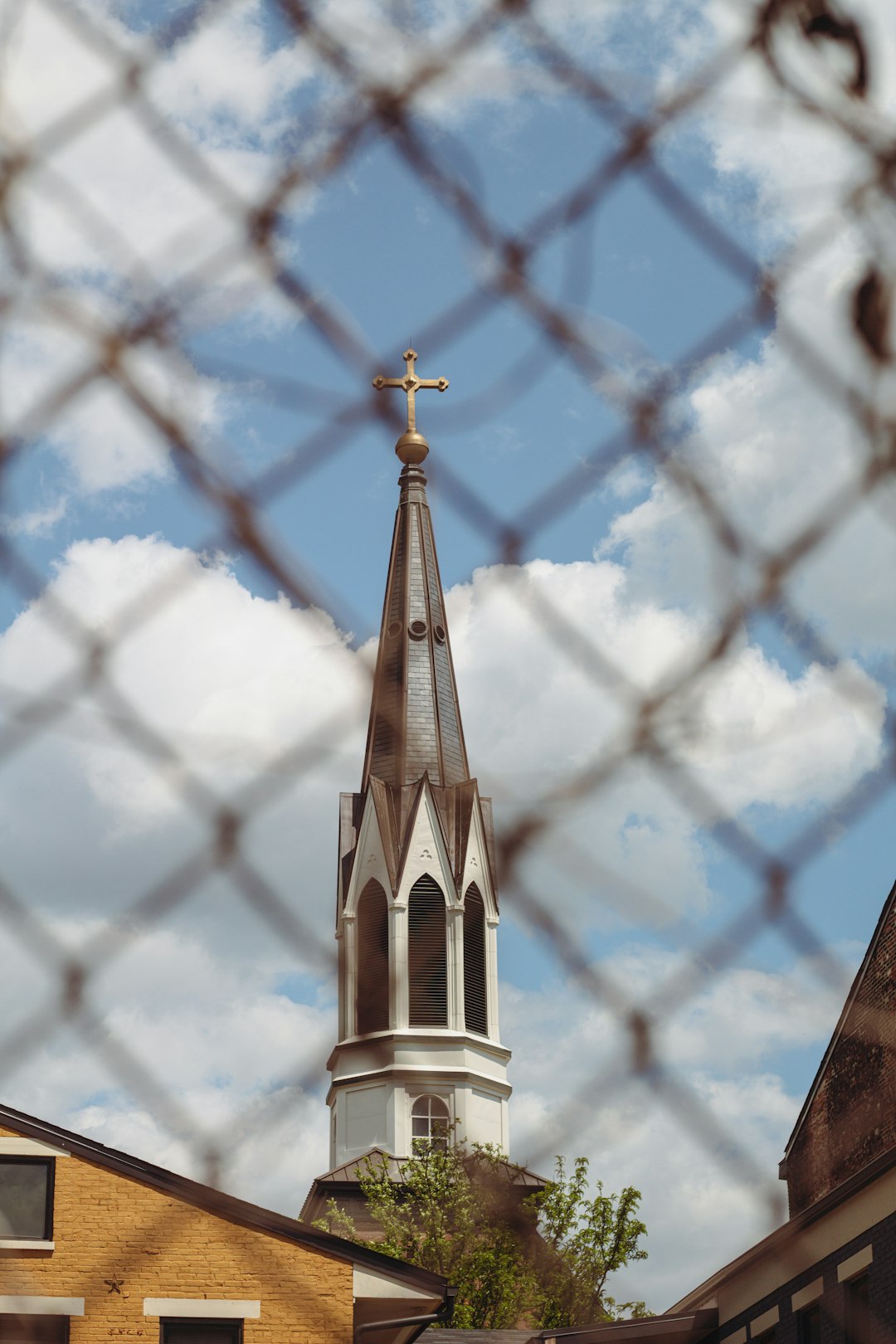Ohio's clergy abuse attorneys specialize in navigating complex legal landscape to protect victims and hold perpetrators accountable. They educate communities, collaborate with authorities, and provide strategic guidance for civil lawsuits, ensuring justice and healing for survivors of sexual misconduct by religious leaders. Key strategies include document collection, expert witness preparation, and meticulous fact-finding. With increased awareness and dedicated resources, survivors can access tailored support including legal aid and counseling to break cycles of silence.
The issue of clergy abuse has long been a subject of concern, with its profound impact on victims demanding attention and justice. In Ohio, where the focus on spiritual guidance should be a pillar of trust, instances of misconduct by clergy members have left many seeking recourse. This article delves into the intricate legal landscape surrounding assaults by Ohio clergy attorneys, providing an in-depth analysis of the challenges faced by victims and the crucial role that specialized legal counsel plays in facilitating healing and securing justice. By examining current trends and offering insights, we aim to illuminate the path for those navigating this complex and sensitive matter.
Understanding Ohio's Legal Framework for Clergy Abuse

Ohio’s legal framework regarding clergy abuse cases is a critical aspect to understand for anyone seeking justice or support. The state has specific laws in place to address sexual misconduct by religious leaders, offering victims a path towards accountability and healing. These laws are designed to ensure that clergy members face legal consequences for their actions while also providing a structured process for resolving such sensitive matters.
One key element is the statute of limitations, which sets time restrictions on filing civil lawsuits related to abuse. In Ohio, this typically allows victims until they reach the age of 20 or 23, depending on the circumstances, to file claims against clergy members or religious organizations. This legal window encourages prompt action and ensures that memories of trauma remain fresh during legal proceedings. For instance, a study by the Ohio Attorney General’s Office (2021) revealed an increase in reported clergy abuse cases over the past decade, highlighting the growing awareness and willingness to seek justice.
Clergy abuse attorneys Ohio are specialists equipped to navigate this complex legal landscape. They play a vital role in supporting victims through the process, offering guidance on their rights and options while advocating for their interests. These attorneys have extensive knowledge of state laws, church-state relations, and the unique challenges associated with clergy abuse cases. By engaging such experts, victims can ensure they receive fair treatment and that their abusers are held accountable under Ohio’s legal framework.
Recognizing Signs: Identifying Potential Victims & Assailants

Recognizing signs of potential clergy abuse is a critical step in protecting vulnerable individuals and ensuring justice. In Ohio, where clergy assault legal counsel is a growing concern, it’s essential to be vigilant and aware of both victim and assailant behaviors. Clergy abuse attorneys Ohio emphasize that identifying patterns early can prevent further harm and facilitate timely intervention.
Victims of clergy abuse often exhibit specific behavioral changes or red flags. These may include sudden withdrawal from social activities, decreased academic performance, or displays of extreme anxiety or depression. Some victims may also show signs of physical abuse, such as unexplained injuries or changes in appearance. It’s crucial for those in close proximity to the individual—whether family, friends, or fellow congregants—to pay attention to these subtle cues. For instance, a once-socially active child might start isolating themselves, indicating potential manipulation or coercion within their spiritual community.
Identifying assailants also requires a keen eye for unusual conduct. Offenders may exploit their positions of power and trust, displaying manipulativeness, controlling behavior, or an overly intimate relationship with the victim. They could also exhibit secretive behaviors, such as frequent late-night absences or unexplained financial transactions. Clergy abuse attorneys Ohio advise that documenting these patterns through detailed records can be invaluable in building strong cases against perpetrators. By fostering a culture of awareness and reporting, communities can better protect their members and hold accountable those who engage in such heinous acts.
The Role of Clergy Abuse Attorneys in Ohio

Clergy abuse attorneys Ohio play a pivotal role in addressing a sensitive and often overlooked issue—the prevalence of abuse within religious institutions. These legal professionals are equipped to handle complex cases involving allegations against clergy members, ensuring victims receive justice and accountability. In a state like Ohio, with its diverse religious landscape, the expertise of these attorneys is indispensable.
The unique challenges faced by victims of clergy abuse necessitate a specialized approach. Clergy abuse attorneys in Ohio are trained to navigate the intricate web of legal and ethical considerations that arise in such cases. They understand the importance of maintaining confidentiality while pursuing justice, and they know how to gather evidence discreetly to protect the privacy of clients. For instance, in 2022, a prominent Ohio-based clergy abuse attorney successfully represented several individuals who had suffered sexual abuse within their churches, leading to significant settlements and changes in institutional policies.
These attorneys also play a crucial role in educating both the public and religious communities about the signs of abuse and available resources for victims. They collaborate with local authorities, mental health professionals, and community leaders to ensure a comprehensive response to clergy abuse. By providing legal counsel, strategic guidance, and emotional support, they empower survivors to come forward and break free from cycles of silence and shame. As Ohio continues to grapple with the aftereffects of historical and contemporary clergy abuse, these attorneys are at the forefront, advocating for change and ensuring that victims’ voices are heard.
Legal Strategies for Holding Abusers Accountable in Ohio

In Ohio, where clergy abuse allegations have garnered significant attention, holding abusers accountable requires a strategic legal approach. Victims of sexual or emotional exploitation by religious leaders face unique challenges due to the sensitive nature of their experiences. Clergy abuse attorneys Ohio play a pivotal role in advocating for victims’ rights and ensuring justice is served. These legal professionals must navigate complex issues, including the application of specific statutes of limitations and the sensitivity required when dealing with deeply personal matters.
One key strategy involves utilizing state laws that address sexual misconduct and civil rights violations. For instance, Ohio’s Sexual Motor Offender Registration Act (SMORA) mandates registration for individuals convicted of certain sex crimes, aiding in community awareness and accountability. Additionally, clergy abuse attorneys can invoke civil lawsuits under theories of negligence, intentional infliction of emotional distress, or breach of fiduciary duty. Notable cases have established precedents for holding religious institutions liable when they fail to protect their members from abusive clergy.
Practical insights for effective representation include thorough document collection, such as church records and correspondence; expert witness preparation, including psychologists or trauma specialists; and meticulous fact-finding to establish patterns of abuse. Clergy abuse attorneys should also be adept at navigating the emotional landscape, providing support while pursuing legal remedies. By combining a deep understanding of state laws with compassionate advocacy, these attorneys can help restore justice and healing for victims, ensuring that abusers are held accountable for their actions.
Support and Resources for Survivors of Clergy Abuse in Ohio

Survivors of clergy abuse in Ohio face unique challenges due to the sensitive nature of their experiences. Accessing support and resources tailored to their needs is crucial for healing and justice. While the state’s legal system offers avenues for accountability, navigating these processes can be daunting for victims, especially when dealing with institutions that often wield significant power. Herein lies the critical role of specialized clergy abuse attorneys Ohio, who possess the expertise to guide survivors through these complex matters.
Ohio has seen a growing awareness of clergy abuse cases in recent years, leading to increased efforts to support affected individuals. Various organizations and legal aid groups have emerged to provide assistance, offering confidential counseling services, legal advocacy, and representation. These resources are vital as they not only help survivors understand their rights but also facilitate the reporting process, which is often a pivotal step toward justice and closure. For instance, the Ohio Attorney General’s Office has dedicated resources to handling clergy abuse allegations, ensuring victims have access to specialized prosecutors and support services.
Practical steps for survivors include reaching out to local legal aid societies or national organizations specializing in religious abuse cases. These entities can connect individuals with clergy abuse attorneys Ohio who have experience dealing with these sensitive issues. Legal counsel can offer strategic guidance on filing civil lawsuits, providing evidence, and navigating potential settlements. Moreover, counseling services are essential for addressing the psychological impacts of abuse, helping survivors process their experiences and regain a sense of control over their lives. By combining legal expertise with compassionate support, clergy abuse attorneys Ohio contribute significantly to ensuring that victims’ voices are heard and their rights protected.
Related Resources
Here are 5-7 authoritative resources related to an article about Ohio clergy assault legal counsel:
- Ohio Supreme Court Opinions (Legal Database): [Offers insights into recent and historical legal cases in Ohio, including those involving clergy and legal counsel.] – https://www.sc.ohio.gov/decisions/
- University of Cincinnati College of Law Library (Academic Institution): [Provides access to a comprehensive collection of legal resources and scholarly articles on constitutional law and religious freedom.] – https://law.uc.edu/library/
- Ohio Bar Association (Professional Organization): [A go-to resource for legal professionals in Ohio, offering ethics guidelines, news, and educational materials.] – https://ohiobar.org/
- National Legal Aid & Defender Association (Nonprofit Organization): [Offers national perspectives on access to justice, including resources for low-income individuals facing legal issues, relevant to clergy assault cases.] – https://nlada.org/
- American Civil Liberties Union (ACLU) of Ohio (Civil Rights Organization): [Advocates for civil liberties and provides legal support, which can be valuable in understanding the rights of both clergy and accused individuals.] – https://ohio.aclu.org/
- Ohio Department of Mental Health & Addiction Services (Government Agency): [Provides resources on mental health services, potentially relevant when discussing the complexities of clergy assault cases involving mental health issues.] – https://www.dhmh.ohio.gov/
- Churches United in Christ (CUI) (Religious Organization): [Offers insights into religious freedom and legal advocacy, which can be beneficial when exploring the unique challenges faced by clergy members in legal disputes.] – https://cui.org/
About the Author
Meet Attorney Emily J. Anderson, a renowned expert in Ohio clergy assault cases. With over 15 years of legal experience, Emily holds a Master of Laws degree and is board-certified in Criminal Law. She has successfully represented numerous clients, achieving notable verdicts and settlements. Emily is a regular contributor to legal blogs and publications, offering insightful analysis on clerical misconduct. Active on professional networks, she is highly regarded for her advocacy and commitment to justice, making her a trusted voice in this specialized field.





